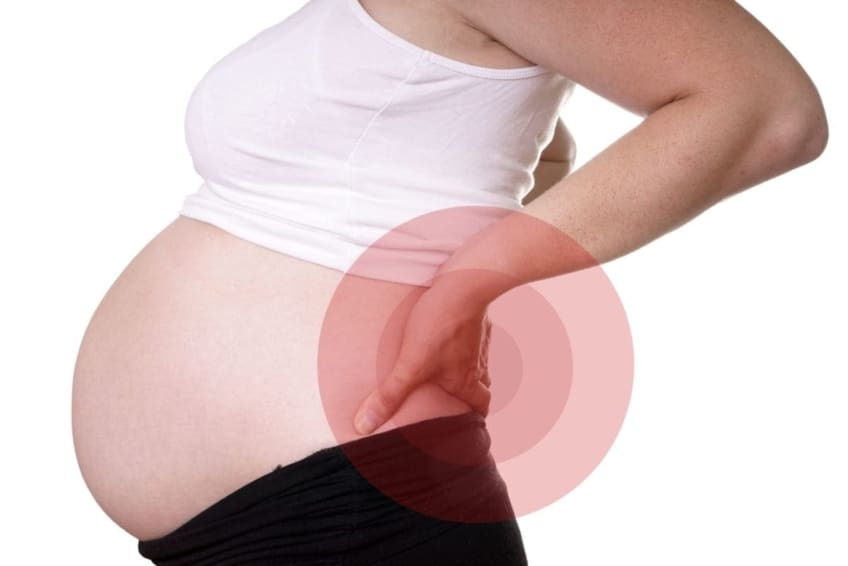
According to the American Academy of Family Physicians (AAFP), low back pain is the fifth most common reason for doctor visits. Most women who are pregnant have some degree of back pain. Women who had prior back pain or are overweight are at higher risk of back pain during pregnancy. Below are possible causes as well as ways to prevent and relieve back pain.
Path to improved well being
There are several causes of back pain during pregnancy. These are due to changes that occur in your body.
Pressure on back muscles
As your baby grows, your uterus expands and becomes heavier. This puts added weight on your back muscles. You may find yourself leaning backward or arching your low back. The pressure can lead to back pain or stiffness.
Weakness in stomach muscles
Your growing baby also puts pressure on your stomach muscles. This can cause them to stretch and weaken. Your stomach and back muscles are connected. Your back muscles have to work harder to offset your belly.
Posture
Pregnancy can alter your center of gravity. The way you move, sit, and stand can cause pain to your back and other parts of your body. A compressed nerve due to poor posture also can cause pain.
Pregnancy hormones
Many hormones change when you are pregnant for different reasons. Later in your pregnancy, hormones increase to relax the muscles and ligaments in your pelvis. This prepares your body for labor. If your muscles and ligaments become too loose, it can lead to back pain.
Stress
Anxiety and built-up tension can make your back muscles tight or stiff.
To help prevent back pain, be mindful of how you sit, stand, sleep, and move.
- Sit in a way that supports your back. Choose a lumbar chair or place a pillow behind your low back. Try propping your feet up to increase blood flow and prevent slouching.
- Sit and stand up straight. Try to keep your back in line with your bottom and legs rather than arch your low back. Do not sit or stand in the same position for a prolonged time. It could pinch a nerve. Do not lock your knees. If you have to stand for long periods, try resting one foot at a time on a box or stool.
- Wear low-heeled shoes that are comfortable and provide support to your whole body. It may help to use arch support inserts. Avoid shoes with heels that can knock you off balance.
- Sleep with a mattress that isn’t too soft and offers support. When you are pregnant, it is best to sleep on your side. Place pillows under your stomach and between your legs for added support. Try to avoid sleeping on your back. This can put pressure on your uterus and cut off blood flow to your baby.
- Do not twist or make sudden movements that could strain your back or stomach muscles.
- Do not lift things by bending forward. Instead, keep your back straight and lift with your legs, not your back. Be careful not to lift or carry too much weight at once.
- Get plenty of exercise. This will help strengthen your back and stomach muscles and improve your posture. Talk to your doctor about what type of exercise is safe. Walking and swimming often are fine. If you were very active before pregnancy, you may be able to continue doing the same level of activity. Certain moves and stretches, such as kegel exercises, also prepare you for labor.
- Wear maternity pants. The wide elastic waistband provides extra support.
If you have back pain, these tips can help relieve soreness and stiffness.
- Apply heat or a cold compress to your back. Avoid putting extreme temperatures on your stomach.
- Take acetaminophen (brand name: Tylenol).
- Find ways to relieve stress. Learn breathing exercises or take a prenatal yoga class.
- Get a prenatal massage from a certified therapist.
- Ask your doctor about alternative medicine. This could include acupuncture or a chiropractic adjustment. It could also include osteopathic manipulation. Your muscles and joints are moved through stretching and using gentle pressure.
Things to consider
The AAFP recommends against some imaging tests when low back pain has been present for less than 6 weeks. The exception is if there is a severe risk, such as a neurological issue. Research shows that imaging done before 6 weeks does not improve outcomes. It increases health care costs. Some imagining tests may not be safe during pregnancy. Talk to your doctor about the benefits and risks.
When to see a doctor
Contact your family doctor if:
- Your pain worsens or does not go away after 2 weeks. Back pain could be a sign of preterm labor.
- You lose feeling in your back, legs, pelvis, or genital area.
- You have a fever, a burning feeling when you pee, or vaginal bleeding. You may have a urinary tract infection (UTI) or kidney infection.
- You have an injury or trauma that results in back pain.
Questions to ask your doctor
- How do I know if my back pain is severe or not?
- What type of exercise is safe during pregnancy?
- Is it safe to get a massage during pregnancy?
- Will my back pain go away after I give birth?
Resources
![]()
Copyright © American Academy of Family Physicians
This information provides a general overview and may not apply to everyone. Talk to your family doctor to find out if this information applies to you and to get more information on this subject.







